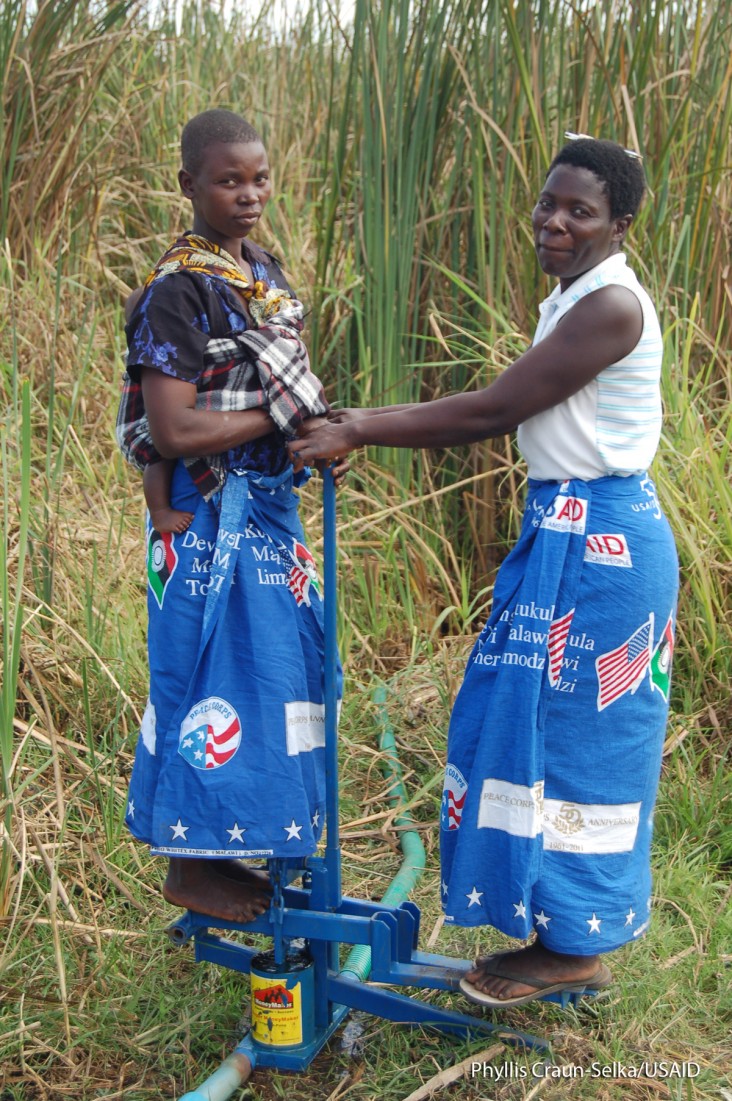
August 2012
Malawi has faced drought and food price fluctuations before, but this time it’s different. The four years of persistent drought has taken a toll and even middle-income families, who can sometimes manage to weather environmental crises, are feeling the pinch. According to Malawi’s Vulnerability Assessment Committee, the last year alone has seen the number of food insecure grown from two to 11 percent—approximately 1.63 million people.
Late, erratic or severely reduced rainfall has caused this devastating drought. These environmental factors coupled with high maize prices and limited access to wage labor has created a food security crisis in 15 districts in central and southern parts of Malawi. Families are less able to respond to these persistent shocks and it has become more difficult to find ways to continue producing food for both consumption and sale.
Implemented by a Catholic Relief Services-led consortium, USAID’s development food aid program in Malawi works with about 20 percent of the population in eight of the drought-prone districts. The program integrates a variety of activities to address food insecurity: conservation agriculture, treadle pump and gravity-fed irrigation, alternative drought-resistant crops, reforestation, watershed revitalization, fish farming, nutrition, HIV/AIDS prevention and care, sanitation, fuel saving stoves, and village savings and loans.
Water-related activities within this program have played a key role in tackling chronic food insecurity and building resilience in the face of this persistent drought.
In drought-prone districts, communities in the program have worked hard planting indigenous trees, digging water-harvesting trenches, and planting drought-resistant crops like banana and pigeon peas. Their efforts are paying off—soil loss through erosion has reduced and cleaner rivers are providing water for household, agricultural and irrigation use.
Communities that have taken the initiative to build their own irrigation trenches are recovering confidence and self-determination in an attempt to stave off a yearly reliance on food assistance. They and other farmers using treadle pump irrigation have already seen a difference in their irrigated crops. They are clamoring for even more tools to irrigate more land. Irrigation, combined with conservation agriculture techniques and cheaper and more readily available manure to fertilize crops, is producing two to three times higher yields. This means there are more crops to sell, equating to higher incomes for farmers and their families. In the 2011 marketing season, farmers in the program sold, as a group, pigeon peas, birds’ eye peas, chilies, rice, sesame and cow peas for more than 34 million Malawi Kwacha—the equivalent of almost $129,000.
These positive results are having a ripple effect on non-participating communities nearby who see the benefit of irrigation and drought-resistant crops. They have begun to copy their neighbor’s farming practices on their own land and they too are now reaping the benefits.
Participating families are also increasing their income by planting high-value alternative crops like vegetables and chilies, bringing in more income than from just marketing maize. They are setting up fish farms and creating village savings and loans associations that enable families to buy essentials that were previously unaffordable—tin roofs, food, medicine, and clothing, for example.
These water-related activities in Malawi coupled with interventions in health and nutrition, income generation, and other areas, are tackling food insecurity in a holistic way. With USAID’s help, communities are building resilience and learning to lessen and cope with the impacts of the current drought to secure a more positive future for their families.







Comment
Make a general inquiry or suggest an improvement.